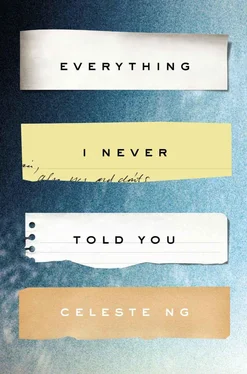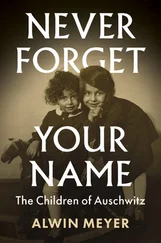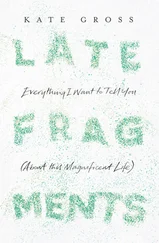Even with her door closed, Lydia could hear it: the click-click of the suitcase latches opening, then a thud as the lid hit the floor. Their family never traveled. Once, when Hannah was still a baby, they’d visited Gettysburg and Philadelphia. Their father had plotted out the whole trip in the road atlas, a chain of places so steeped in Americana that it oozed out everywhere: in the names of the gas stations — Valley Forge Diesel — and in the diner specials when they stopped for lunch— Gettystown Shrimp, William Penn’s Pork Tenderloin. Then, at every restaurant, the waitresses had stared at her father, then at her mother, then at her and Nath and Hannah, and she knew, even as a child, that they’d never come back. Since then, their father had taught summer classes every year, as if — she rightly suspected — to avoid raising the question of family vacations.
In Nath’s room, a drawer shut with a bang. Lydia leaned back on her bed and propped her heels on the postcard of Einstein. In her mouth, the sick-sweet taste of frosting still lingered; in her stomach, the birthday cake roiled. At the end of summer, she thought, Nath would pack not just the one suitcase but a trunk and a stack of boxes, all his books and all his clothes, everything he owned. The telescope would disappear from the corner; the stacks of aeronautics magazines would vanish from the closet. A band of dust would border the bare shelves, clean wood at the back where the books had once stood. Every drawer, when she opened it, would be empty. Even the sheets on his bed would be gone.
Nath pushed the door open. “Which one’s better?”
He held up two shirts, a hanger in each hand, so they flanked his face like curtains. On his left, a plain blue, his best dress shirt, the one he had worn to his junior award ceremony last spring. On the right, a paisley she’d never seen before, a price tag still dangling from the cuff.
“Where’d you get that?”
“Bought it,” Nath said with a grin. All his life, whenever he needed new clothes, their mother dragged him to Decker’s Department Store, and he agreed to anything she picked out in order to go home faster. Last week, counting over his ninety-six hours, he had driven himself to the mall for the first time and bought this shirt, plucking the bright pattern from the rack. It had felt like buying a new skin, and now his sister sensed this, too.
“A little fancy for going to class.” Lydia did not right herself. “Or is that how they expect you to dress at Harvard?”
Nath lowered the hangers. “There’s a mixer for visiting students. And my host student wrote me — he and his roommates are throwing a party that weekend. To celebrate the end of term.” He held the patterned shirt against him, tucking collar beneath chin. “Maybe I’d better try it on.”
He disappeared into the bathroom, and Lydia heard the scrape of hanger on shower rod. A mixer: Music, dancing, beer. Flirting. Phone numbers and addresses scribbled on scraps of paper. Write me. Call me. We’ll get together. Slowly her feet slid down to rest on her pillow. A mixer. Where new students got whirled together and blended up and turned into something new.
Nath reappeared in the doorway, fastening the top button of the paisley shirt. “What do you think?”
Lydia bit her lip. The blue pattern against the white suited him; it made him look thinner, taller, tanner. Though the buttons were plastic, they gleamed like pearl. Already Nath looked like a different person, someone she’d known once a long time ago. Already she missed him.
“The other one’s better,” she said. “You’re going to college, not Studio 54.” But she knew Nath had already made up his mind.
Late that night, just before midnight, she tiptoed into Nath’s room. She had wanted to tell him all evening about their father and Louisa, about what she’d seen in the car that afternoon, what she knew was going on. Nath had been too preoccupied, and pinning down his attention had been like catching smoke in her hands. This was her last chance. He would be leaving in the morning.
In the dim room, only the small desk lamp was on, and Nath was in his old striped pajamas, kneeling at the windowsill. For a moment Lydia thought he was praying, and, embarrassed at catching him in such a private moment — like seeing him naked — she began to close the door. Then, at the sound of her footsteps, Nath turned, his smile as incandescent as the moon just beginning to swell over the horizon, and she realized she’d been wrong. The window was open. He had not been praying, but dreaming — which, she would realize later, came to almost the same thing.
“Nath,” she began. The rush of things she wanted to say churned in her head: I saw. I think. I need. Such a large thing to break into tiny granules of words. Nath didn’t seem to notice.
“Look at that,” he whispered, with such awe that Lydia sank to her knees beside him and peered out. Above them, the sky rolled out a deep black, like a pool of ink, littered with stars. They were nothing like the stars in her science books, blurred and globby as drops of spit. They were razor-sharp, each one precise as a period, punctuating the sky with light. Tipping her head back, she could not see the houses or the lake or the lamps on the street. All she could see was the sky, so huge and dark it could crush her. It was like being on another planet. No — like floating in space, alone. She searched for the constellations she had seen on Nath’s posters: Orion, Cassiopeia, the Big Dipper. The diagrams seemed childish now, with their straight lines and primary colors and stick-figure shapes. Here the stars dazzled her eyes like sequins. This is what infinity looks like, she thought. Their clarity overwhelmed her, like pinpricks at her heart.
“Isn’t that amazing,” Nath’s voice said softly, out of the darkness. Already he sounded light-years away.
“Yeah,” Lydia heard her own voice say, barely a whisper. “Amazing.”
• • •

The next morning, as Nath tucked his toothbrush into its case, Lydia hovered in the doorway. In ten minutes, their father would drive him to the airport in Cleveland, where TWA would carry him to New York, then Boston. It was four thirty A.M.
“Promise you’ll call and tell me how things are going.”
“Sure,” Nath said. He stretched the elastic straps over his folded clothes in a neat X and clapped the suitcase shut.
“You promise?”
“I promise.” Nath shut the latches with one finger, then hoisted the suitcase by the handle. “Dad’s waiting. I’ll see you Monday.”
And just like that, he was gone.
Much later, when Lydia came downstairs for breakfast, she could almost pretend that nothing had changed. Her homework lay beside her breakfast bowl with four little ticks in the margin; across the table, Hannah picked pebbles of cereal from her bowl. Their mother sipped oolong and leafed through the newspaper. Only one thing was different: Nath’s place was empty. As if he had never been there.
“There you are,” Marilyn said. “Better hurry and fix this, sweetheart, or you won’t have time to eat before the bus.”
Lydia, who felt as if she were floating, made her way to the table. Marilyn, meanwhile, skimmed the paper — Carter’s approval rating 65 percent, Mondale settling into role of “Senior Adviser,” asbestos banned, another shooting in New York — before her eyes came to rest on a small human-interest story in the corner of the page. Los Angeles Doctor Revives Man in Coma for Six Years. Amazing, she thought. She smiled up at her daughter, who stood clinging to the back of her chair as if, without it, she might drift away.
Читать дальше













